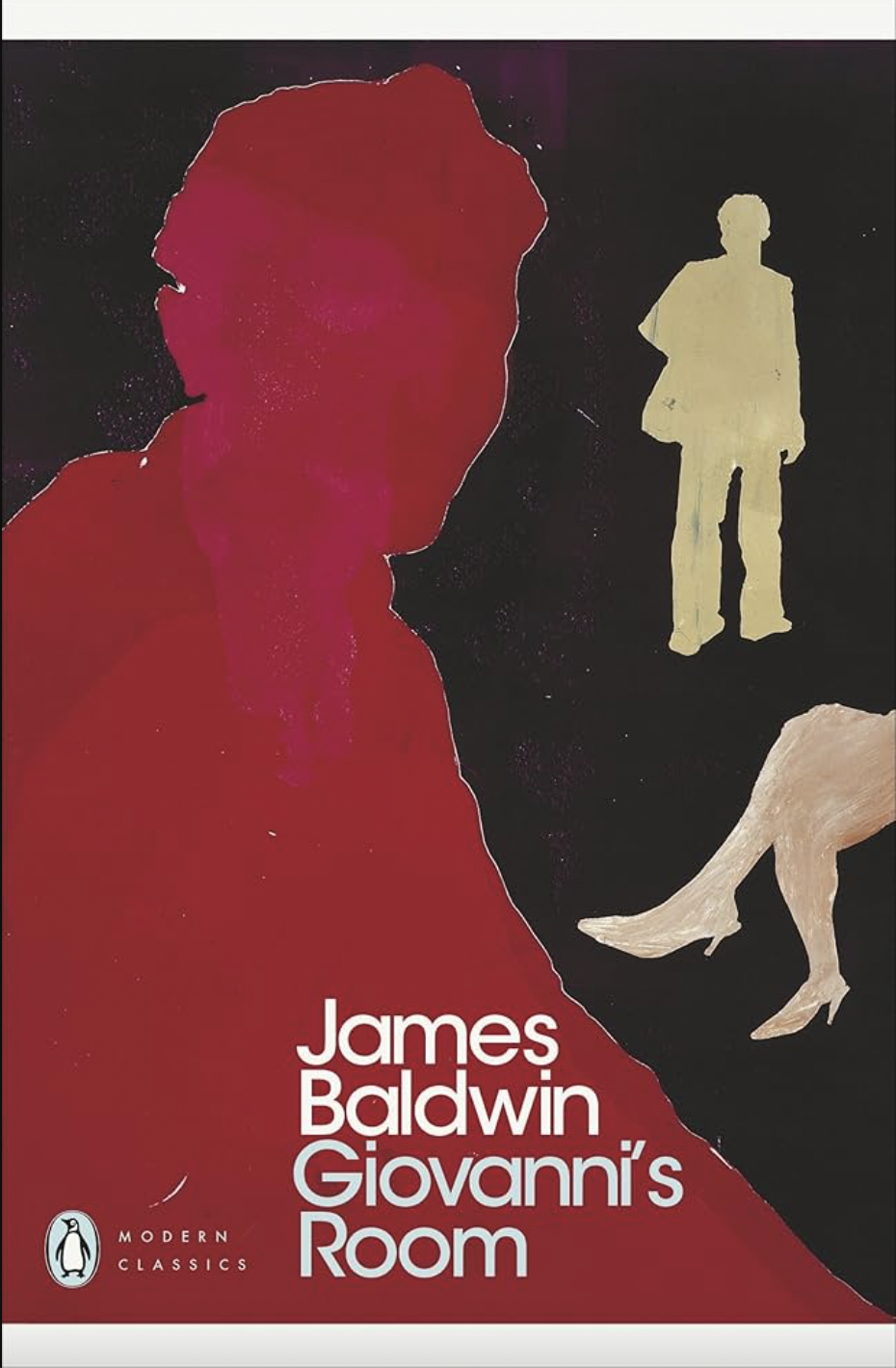Necessary Women: “Giovanni’s Room” by James Baldwin
Review by Elena Negrón
…the great difficulty is to say Yes to life.
This book has impacted me profoundly in terms of style of writing. It was a book that made me stop on nearly every page and think, “this is good writing.” It’s my fault for not reading Baldwin sooner, and I’ll spend the next few years making up for it. I was surprised that I liked this book as much as I did because I often gravitate towards books that center women and books written by women. But Baldwin develops this love story between Giovanni and David so beautifully, even if it is clearly doomed from the beginning. We enter the story knowing that Giovanni will soon die, and somehow we care even in the first few pages. And then when we meet Giovanni for the first time, he is this figure who seems both rough and charismatic and we spend the next hour or so of our lives wondering how he will end up in a predicament that sends him to the guillotine. And Baldwin spends that time exploring the unstoppable nature of love, the flexible rigidity of gender and sexuality, and the damage we do to ourselves by denying the pulls to those things within ourselves.
An Argument for Women, Necessity, and Hella
I understand that it’s potentially problematic to read this book in the lens of post-third wave feminism. But that is the way that I approach most books. And Giovanni’s Room is most clearly about sexuality and the fluidity of gender; Baldwin has claimed that it is a reflection on love, and who am I to disagree. Except as I finished the book, I couldn’t help but think of the women. The way the women were written, and what that meant for the time period. Giovanni’s Room has approximately one woman character, maybe two if you count David’s aunt and the woman who owns the house from which David narrates the book. Because of that, I have very little to work off of. But what I finally determined is that in Giovanni’s Room, women are a necessary evil. Hella is someone who looms over David, who is an imposing figure that will bring about the end of his relationship with Giovanni. But she is someone who he feels that he cannot refuse, even if he cannot say that he loves her. It is through Hella that he denies himself Giovanni, but in that he cannot give Hella what she wants and deserves. She begs, at the end, for David to let her be a woman, to be with her and to let her have children and to be soft. While I think that this begging does play into the views on women and their desires in that time period, Hella is not expressing something that women haven’t expressed before.
I have been thinking a lot about the ways that gay men can and are perpetrators of misogyny on accident or on purpose; the way that women are treated by men of all sexualities as subhuman and useless if they are not objects of attraction. There is misogyny in abundance throughout this book, but it’s not being presented as Baldwin in agreement. It’s also not being presented as Baldwin being fully aware. He seems to have a general sense of Hella as a victim, Hella as someone who is weakened by David just as Giovanni is, even after Giovanni’s rant about women. In this way, Hella is simultaneously equal to Giovanni and the source of Giovanni’s pain. However, Hella is not the villain; the villain is the gender normalities in society that have made her seem inevitable to David. Baldwin recognizes this at least adjacently and through Hella, we receive a rounded view on gender expectations and their destructive consequences in love and in life. In this way, Hella is entirely necessary to the book.
Final Thoughts
There are other themes that aren’t often discussed when talking about Giovanni’s Room that stood out to me, like what it means to be of American nationality, or the significance of home. But perhaps these things just mean more to me because of the stage of my life that I am in. I am going to spend the next months, or more, of my life thinking about this book. From the craft from just the sentence level standpoint, to the messages on life and denying oneself their desires, to the thousands of underlineable quotes. This book has been the most impactful of the year for me.
